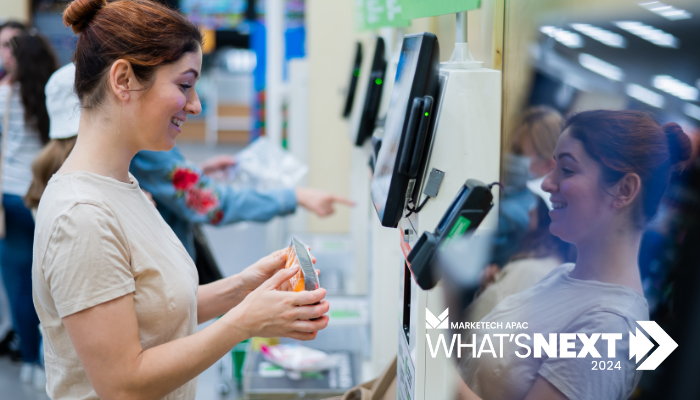Malaysian consumers seek more immersive and convenient shopping experiences. Adyen’s 2023 Peak Season report notes that 55% of Malaysian retailers have observed an increase in customer expectations in response to this behaviour.
This trend is even more pronounced in Malaysia, where 40% of consumers wait for key calendar moments, such as the upcoming Chinese New Year season, to make their purchases, hoping to secure the best deals and discounts.
This peak sales season, Malaysian retailers are standing at a threshold of a major transformation in order to meet these preferences.
Bridging the digital and physical divide
Traditionally, online and offline transactions are treated separately and not integrated, making for a poor shopping experience. Yet, evolving consumer preferences show a demand for seamless integration of online and physical shopping experiences.
To this end, retailers are embracing a unified strategy to elevate the shopping experience. This strategy connects backend systems of a business with its customer-facing channels via a single platform, enabling retailers to gather valuable data insights and help them improve customer experiences.
With these insights, retailers are able to bring a new level of personalisation to the retail experience, such as offering rewards and discounts that are tailored to the customer’s interests. A connected backend also means that retailers are able to recognise returning shoppers easily, thus enabling flexible purchases and exchange processes at the shopper’s convenience.
During peak seasons like Chinese New Year, the focus is also on the convenience enabled by in-store technologies, including portable payment devices, self-checkout kiosks, and flexible payment options. This mirrors the ease of online shopping, offering swift and hassle-free transactions—picture the efficiency of fast mobile checkouts in-store versus the simplicity of one-click online checkout—while minimising queues and wait times.
Innovations such as self-checkout kiosks and mobile apps have become popular among Malaysian consumers, with 52% reporting a happier shopping experience. Beyond this, the rise in usage of portable in-person payment devices in-stores have shown how they open possibilities for more dynamic in-store customer journeys.
For example, Sephora Malaysia revamped their in-store experience, which included removing as many counters as possible in their stores. This strategic move liberated staff from traditional cashier roles, allowing them to serve as roving sales and beauty consultants, providing personalised assistance and value-added services at the retail store floor. Today, staff are now able to help customers complete purchases on the spot without needing to guide customers to a counter or to a queue. This reflects consumer expectations, mimicking online shopping behaviours by busting checkout queues and offering a more personalised and efficient in-store experience.
Consistent data analysis of consumer behaviour also helps retailers better forecast future demand, especially during peak shopping seasons. This in turn can optimise inventory management to avoid shortages or excess stock. Real-time inventory tracking, often facilitated by IoT devices, further aids retailers in ensuring a smooth shopping experience.
Customising experiences to consumer preferences
Malaysian shoppers desire smooth and easy transactions with minimal hassle. A significant 55% of shoppers have no qualms about abandoning their purchase if their preferred payment method is not available. This scenario becomes even more critical during high-traffic sales seasons. As a retailer, the last thing you want is to frustrate a customer who can’t pay how they want, at the very last stage of the purchase.
An overwhelming 79% of shoppers also now seek more personalised discounting from retailers, indicating a clear preference for offers that cater to their specific needs and interests. By leveraging technologies to gather actionable data and insights, retailers can better understand their customers’ behaviours. Through the analysis of purchasing patterns and browsing habits, retailers can go beyond one-off discounts and purchases and drive repeat engagement through more meaningful long-term incentives and rewards programmes.
As we anticipate the peak sales season of 2024, it is clear that continuous technological innovation is shaping the future of retail in Malaysia. While consumers’ needs have not undergone drastic shifts, the evolving dynamics of how retailers meet these needs constitute a dynamic blend of art and science. This highlights the imperative for retailers to consistently innovate to stay ahead of their customers’ ever-evolving preferences. Those who embrace these changes and use data-driven insights gain an edge by turning transactions into meaningful relationships with consumers. Adaptability is key for long-term success in the ever-changing retail landscape.

This article is written by Lee Soon Yean, Country Manager, Malaysia, Adyen
The insight is published as part of MARKETECH APAC’s thought leadership series under What’s NEXT 2023-2024. What’s NEXT 2023-2024 is a multi-platform industry initiative which features marketing and industry leaders in APAC sharing their marketing insights and predictions for the upcoming year.


